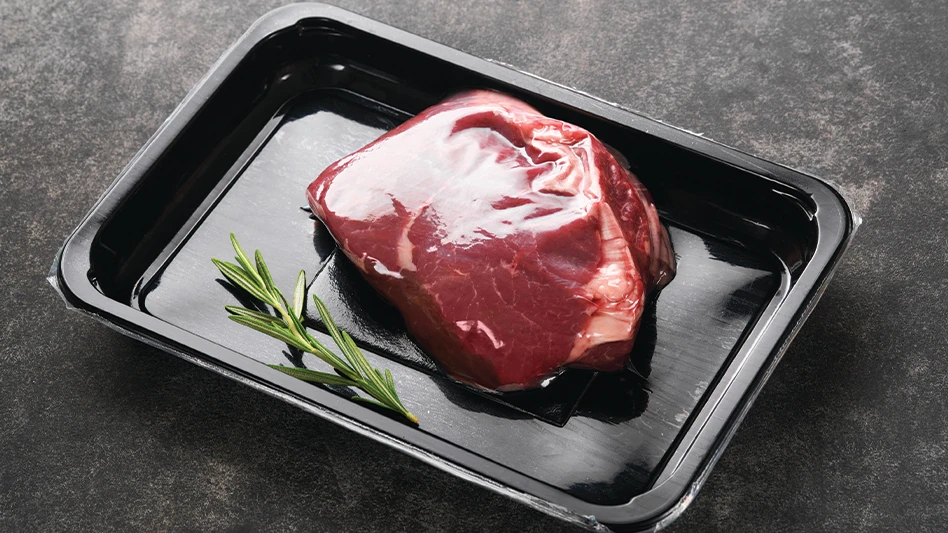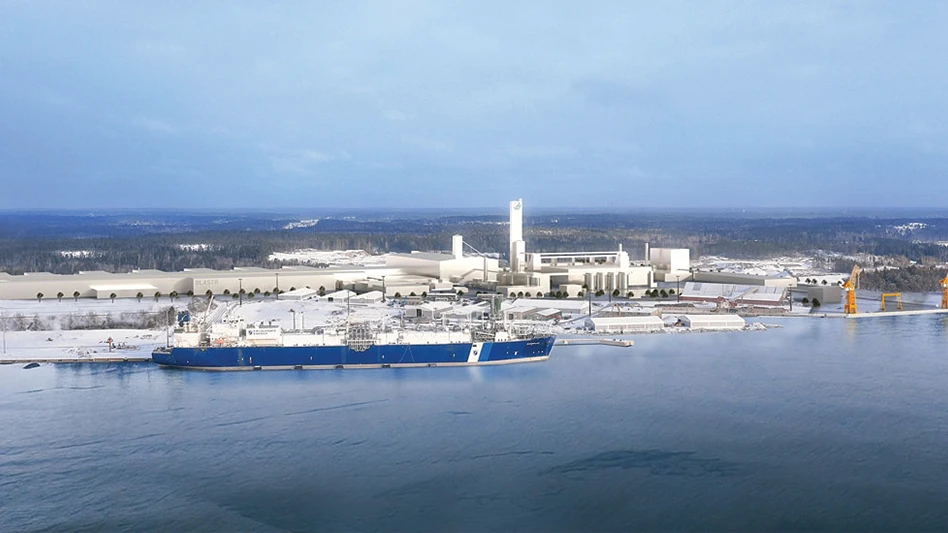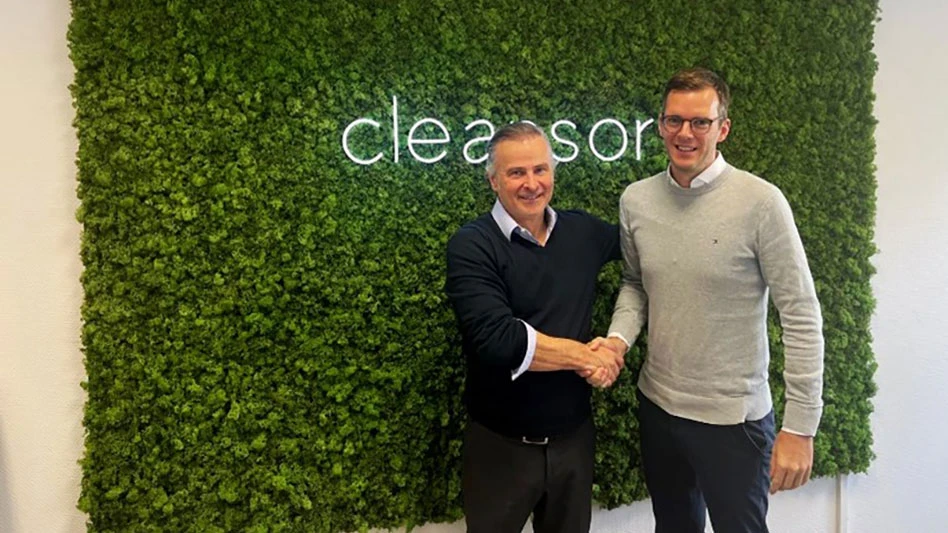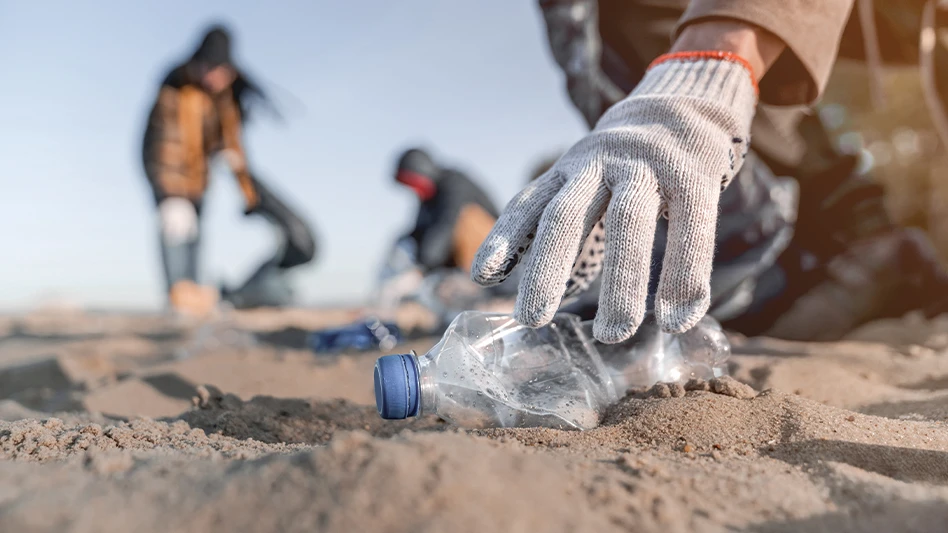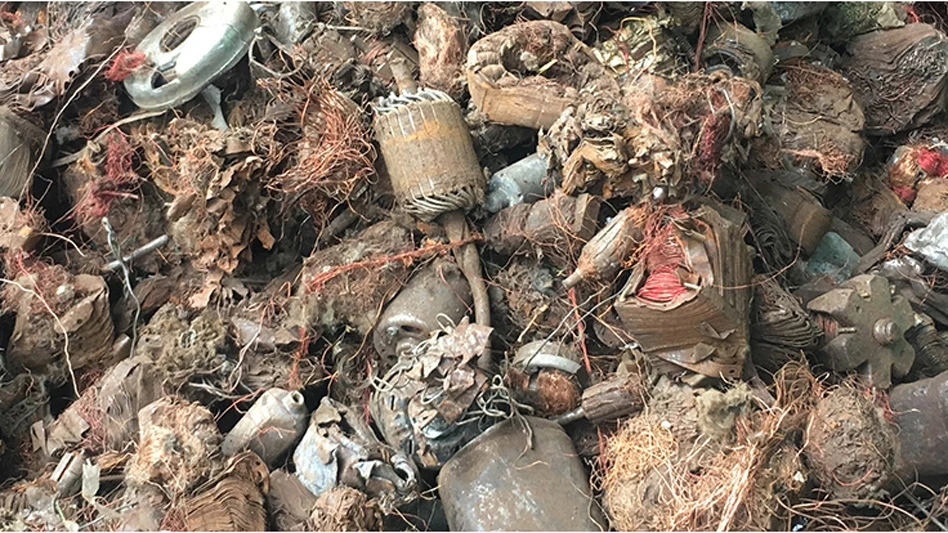_fmt.png)
The Recycling Partnership launches West Coast Contamination Initiative
Contamination costs the U.S. recycling system more than $300 million every year and is especially costly to communities along the West Coast, according to The Recycling Partnership. To tackle this crucial challenge, the Falls Church, Virginia-based organization, with support from Amazon, Keurig Dr Pepper (KDP) and other funding partners, is launching the West Coast Contamination Initiative (WCCI).
According to a news release from The Recycling Partnership, WCCI’s goal is to increase the quality of recyclables collected at the curb in communities on the West Coast, which will help drive the circular economy, create a healthier environment and build stronger communities. The partnership will work together with state and municipal leadership to develop tactics, best practices and tools available to communities—from San Diego all the way to Seattle—to recycle more and recycle better.
“California, Oregon and Washington have been hit hard by the current recycling market conditions,” says Keefe Harrison, CEO of The Recycling Partnership. “For the past five years, we have been developing, testing and refining best practices and tools to help states like Massachusetts and cities like Chicago and Atlanta not just weather but rise above challenges in the recycling marketplace. Thanks to support from Amazon, Keurig Dr Pepper and other funding partners, we are now going to invest $1 million to help the West Coast build a more sustainable recycling system that drives the circular economy,” she explains.
While some residents put their recyclables in plastic bags in their recycling bins, others wish certain things could be recycled—such as garden hoses, ropes, wires, plastic films and wraps, food, clothing, batteries or flammables—and mistakenly add those items into their bins. These items can damage equipment and shut down recycling facilities temporarily.
WCCI is one of several anti-contamination projects The Recycling Partnership is planning that will take place across the country.
“We’re excited to connect our knowledge, data and on-the-ground expertise with the expertise of West Coast states and community programs to fight contamination and develop a roadmap for success,” says Cody Marshall, chief community strategy officer at The Recycling Partnership. “We’re ready to dig in.”

Philadelphia signs recycling contract with WM
The city of Philadelphia has signed a new recycling contract with Waste Management Inc. (WM), headquartered in Houston. Under the terms of the contract, all the recyclables collected by the city will be processed at WM’s material recovery facility (MRF).
The city will pay $90 to $100 per ton to process the collected recyclables under the best-value contract, with incentives for decreasing recycling contamination. The city had been operating under an interim agreement that mimicked the terms of the new contract.
“The Streets Department, along with representatives from Procurement and the Law Department, worked intently to deliver a contract that combined fiscal responsibility with incentives for cleaning up the recycling stream,” says Mayor Jim Kenney. “Ultimately, the best value has been negotiated on behalf of all taxpayers, getting us back on track with our goals for Zero Waste by 2035.”
The city had processed half of collected recyclables at a MRF while the other half was sent to a waste-to-energy facility. The temporary process lasted nearly six months, following changes in the global recycling market that challenged the U.S. recycling sector.
“The shift in the recycling market coincided with the end of the city’s previous recycling contract,” says Michael Carroll, deputy managing director for the Office of Transportation Infrastructure Systems. “Recycling has been a volatile market over the years, at times generating revenue and at other times costing the city millions to process. To be sustainable, we all need to reduce what we consume to produce the most favorable situation.”
The new contract will be supported by an educational campaign emphasizing contamination reduction. Philadelphia’s contamination was last calculated in 2017 at 19.2 percent.

Glass Recycling Foundation launches to support glass programs
Launched April 16, the Glass Recycling Foundation (GRF), Ann Arbor, Michigan, will focus solely on funding glass recycling initiatives. The nonprofit organization will provide and raise funds for localized and targeted assistance and for demonstration and pilot projects that address gaps in the glass recycling supply chain across the United States, the GRF says.
“Glass bottles and containers are endlessly recyclable,” GRF Board President Lynn Bragg says. “The Glass Recycling Foundation will impact communities by funding projects to recover more and higher quality glass.”
The organization’s board members represent various companies and organizations, including Owens-Illinois, Diageo, Strategic Materials Inc., Northeast Recycling Council, The Recycling Partnership, Urban Mining, California State University and Chico.
GRF will collaborate with the Glass Recycling Coalition (GRC), which consists of nearly 40 members from the entire glass recycling value chain, including material recovery facilities, glass recyclers, local government organizations, end markets and brands. Since 2016, GRC has highlighted best practices in glass recycling processing, collection and collaboration. GRF will support the GRC’s glass recycling efforts on a local level by funding projects.
“GRF will be instrumental in bringing much-needed investments to glass recycling and partnering with other funding opportunities to make glass recycling a high-quality and convenient service that consumers want and expect,” says Laura Hennemann, chief financial officer at Strategic Materials Inc. and a GRF executive board member.
The GRF aims to increase the availability of cullet, the industry term for furnace-ready recycled glass, that can be made into new bottles, jars and fiberglass, which will help meet demand from U.S. glass container and fiberglass insulation manufacturers.
According to a 2018 study by the GRC, 93 percent of consumers and residents expect to be able to recycle glass containers. More than 80 percent of U.S. municipal recycling programs include glass collection options for their residents.

Explore the June 2019 Issue
Check out more from this issue and find your next story to read.
Latest from Recycling Today
- Call2Recycle strengthens partnership with Brockville, Ontario
- Symphony Environmental launches biodegradable resin for plastics industry
- Updated: Saica exploring recycled paper mill project in Dayton, Ohio, report says
- Reju, NFT working together on textile circularity in France
- Iondrive raises $6M for battery recycling pilot plant, commercialization efforts
- Steel output in US remains off 2023 pace
- Tata Motors opens auto dismantling facility in India
- Rio Tinto incorporates recycled aluminum in Australia
